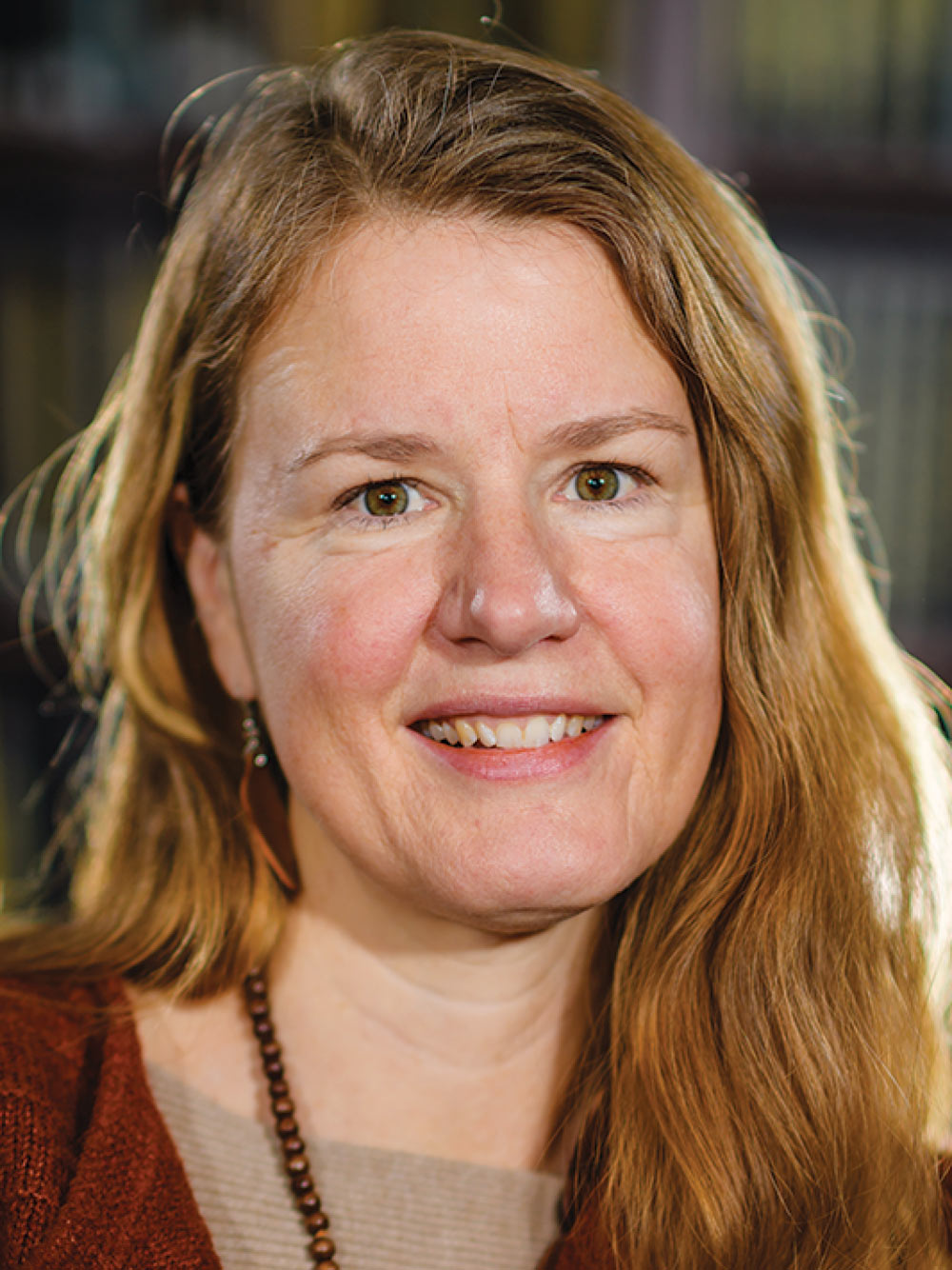A Bigger “Us”
That early experience of displacement galvanized Koopman to pursue a career understanding what divides us, what brings us together, and how to coexist and resolve differences peacefully.
Koopman is an associate professor at the School of Peace and Conflict Studies at Kent State University, where, in 1970, four students were killed and nine others wounded by National Guard troops during a campus antiwar demonstration.
The killings sent a shock wave through the nation, and Koopman’s position was one of three created by Kent State in remembrance on the 50th anniversary of the shootings.

“Sometimes people are so polarized that, in the classroom, it has become more and more difficult to talk about charged political issues,” says Koopman, who teaches courses and skills that focus on ways of understanding society and communicating that build bridges.
One technique Koopman uses in her courses is nonviolent communication, a set of guidelines for talking about contentious topics.
“It helps you focus on what values and needs someone you are speaking with has in a particular moment,” she says.
The empathy and respect cultivated by the process can help defuse contention, and promote conditions for understanding and constructive dialogue. While at Swarthmore, Koopman worked at the Swarthmore College Peace Collection, an archive devoted to documenting nonviolent social change, founded through the agency of Nobel Peace Prize-winner Jane Addams H’32.
“Peace isn’t just about the absence of war,” Koopman explains. “Peace with justice is positive peace, and Jane Addams was the first person to use this term.”
Issues of peace and security echo Koopman’s early ruminations on belonging. She cites Edward Said’s concept of “Orientalism.” “The idea is that we are safe within our borders over here, and those people over there are dangerous,” says Koopman.
“I think that dynamic still happens today at all sorts of levels. It’s us against them. We need to create a greater sense of belonging, a bigger us.”